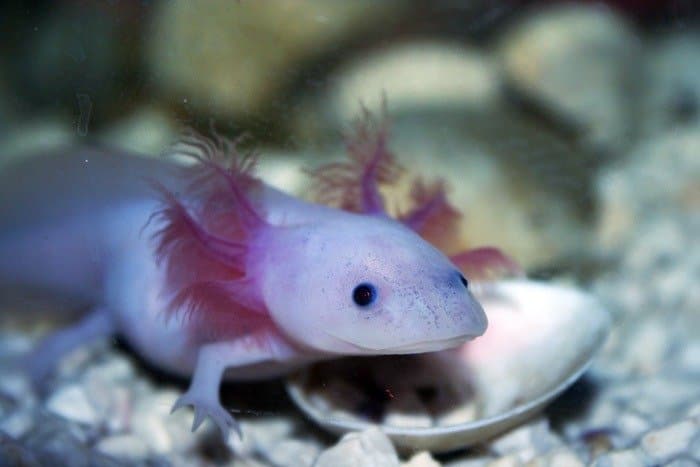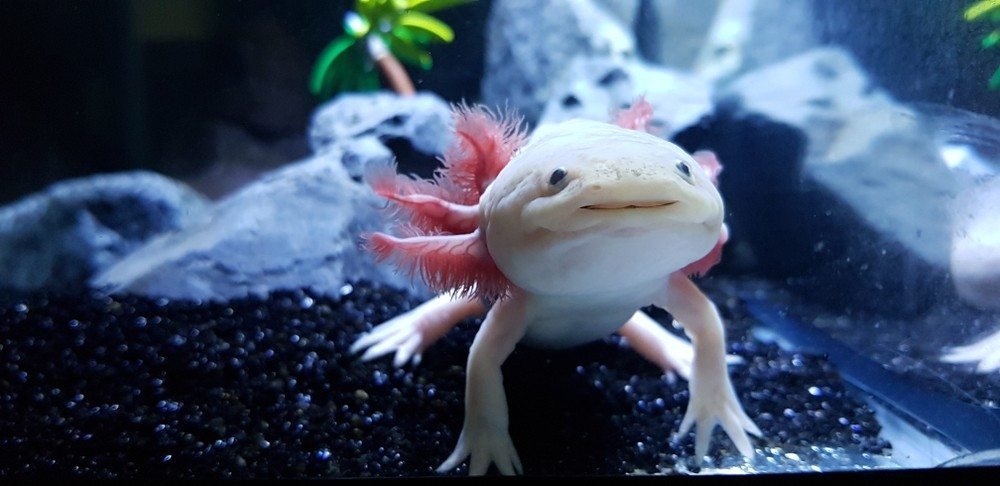Axolotls typically live for around 10-15 years in captivity. One fascinating creature that has gained popularity in recent years is the axolotl.
Known for its unique appearance and regenerative abilities, the axolotl has become a popular pet choice for many enthusiasts. But how long do these captivating creatures actually live? We will explore the average lifespan of axolotls and discuss factors that can influence their longevity.
Understanding the lifespan of axolotls is essential for providing the proper care and environment to ensure their well-being. So, if you’re curious about how long these amazing amphibians can live, keep reading to find out more.
Factors That Influence Axolotls’ Lifespan
Axolotls, commonly known as Mexican walking fish, have a lifespan that can be influenced by various factors. Genetic factors play a significant role in determining how long these unique aquatic creatures can live. The specific genetic makeup of an axolotl can impact its overall health and lifespan.
Additionally, environmental factors, such as the water temperature, quality, and habitat, can also influence their longevity. Maintaining optimal conditions for axolotls is crucial to ensure their well-being and extend their lifespan. Furthermore, diet and nutrition play a vital role in the lifespan of axolotls.
Providing a balanced and nutritionally rich diet is essential for their growth and ensuring they live a healthy life. Owners must understand and regulate these factors to ensure these captivating amphibians have the best chance of a long and fulfilling life.
Average Lifespan Of Axolotls
Axolotls, fascinating amphibians native to Mexico, have a relatively long lifespan compared to other amphibians. On average, axolotls live for 10 to 15 years, but some individuals can even reach up to 20 years of age. This exceptional longevity sets them apart from their amphibian counterparts.
While most amphibians undergo metamorphosis from a larval stage to an adult stage, axolotls retain their juvenile features throughout their lives. This unique characteristic, known as neoteny, contributes to their extended lifespan. Unlike other amphibians that go through a complete metamorphosis, axolotls remain permanently aquatic.
These incredible creatures are well adapted to their environments, and with proper care, they can live a full and fulfilling life in captivity. So, if you’re considering adding an axolotl to your household, buckle up for a long-lasting and rewarding companionship.
Prolonging The Lifespan Of Axolotls
Axolotls, also known as Mexican walking fish, have a surprisingly long lifespan for an amphibian. Proper tank setup plays a crucial role in prolonging their lives. Creating ideal water conditions is essential, ensuring the right temperature, pH levels, and adequate filtration.
Feeding and supplementation are equally important as axolotls have specific dietary requirements. Providing a balanced diet including live or frozen food boosts their health. Disease prevention measures such as regular tank cleaning, quarantine for new arrivals, and monitoring water quality minimize the risk of illnesses.
Additionally, stress reduction techniques like maintaining a calm environment with hiding spots and avoiding sudden changes in water parameters promote axolotls’ wellbeing. By following these guidelines, axolotl owners can enhance their pets’ lifespan and enjoy their company for many years.

Credit: a-z-animals.com
Frequently Asked Questions On How Long Does Axolotls Live
How Long Do Axolotls Live In Captivity?
Axolotls can live up to 10 to 15 years in captivity if provided with proper care and a suitable environment. However, with ideal conditions, some axolotls have even been known to live up to 20 years.
What Affects The Lifespan Of Axolotls?
Several factors can influence the lifespan of axolotls. The quality of their habitat, water conditions, diet, genetics, and overall care play key roles in determining how long they will live. Proper maintenance and a balanced diet are essential for ensuring a healthy and long life for these fascinating creatures.
How Can I Increase The Lifespan Of My Axolotl?
To increase the lifespan of your axolotl, it is crucial to provide a conducive environment with clean water, a suitable temperature range (around 60-68°F), and proper filtration. Feeding them a balanced diet of live or frozen food, while avoiding overfeeding, can also contribute to their overall health and longevity.
Can Axolotls Regenerate Body Parts?
Yes, axolotls have an incredible ability to regenerate body parts. Unlike most other animals, they can regrow not only limbs but also organs, spinal cords, and even parts of their brains. This remarkable regenerative ability has made them a subject of great interest in scientific research.
Conclusion
Axolotls are fascinating creatures that captivate the curiosity of pet lovers and researchers alike. Through this article, we have explored the question of how long axolotls live. It is important to note that axolotls have a relatively long lifespan compared to other amphibians, with the average ranging from 10 to 15 years.
However, there have been reports of axolotls living even longer, reaching up to 20 years in some cases. Factors such as diet, habitat, and genetics can impact the lifespan of an axolotl. By providing ideal living conditions, proper nutrition, and regular veterinary care, axolotl owners can help their beloved pets live a happy and healthy life.
Remember to monitor and address any signs of illness or stress promptly. The enchanting axolotl serves as a remarkable example of the unique biodiversity found in our world, reminding us of the wonders that nature has to offer.
